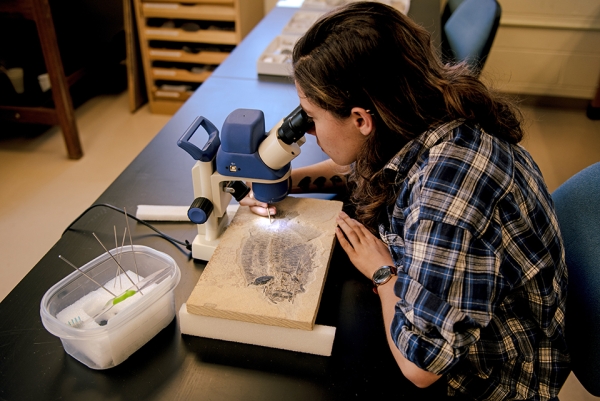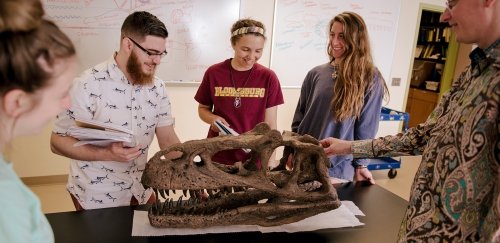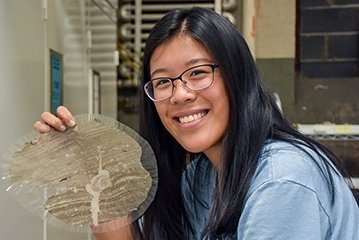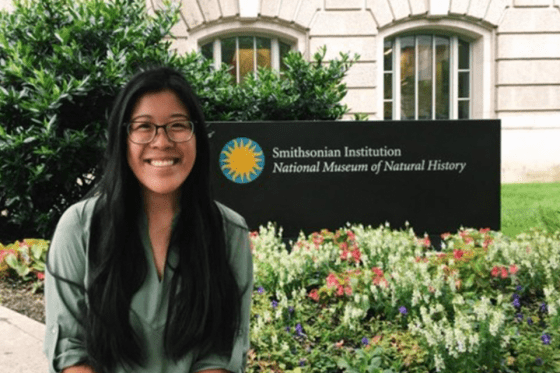

Museum Conservation (Certificate)
Natural history collections are necessary for the study of nearly every discipline in the natural sciences. They are our record of biodiversity, the history of life, earth materials, and material culture.
- Degrees & Offerings
-
- Certificate
- Program Contact
-
Assistant Professor of Environmental, Geographical, and Geological Sciences
-
Chair and Professor of the Department of Environmental, Geographical, and Geological Sciences

These collections can be found in museums, parks, zoos, private industries, and government agencies. They serve as a foundation for scientific research into evolutionary biology and biodiversity, earth history, climate change, and human cultures and their history.
Despite the impression of durability, these objects are in fact fragile, in need of constant care, conservation and maintenance in order to preserve them. We also need to increase our record of the natural world through continued collection, preparation, and conservation of these objects.
This collection, preparation and care requires trained professionals to accomplish these tasks. The Museum Science certificate courses will provide you with experience in the materials and methods for the care and conservation of natural history collections. This will open employment opportunities in places that keep and maintain collections.
The Husky Difference


A summer in the Smithsonian
It’s a popular summer destination for tourists, but for one Husky it was simply the next step of her career pursuit. Keara Drummer is no stranger to museums and paleontology studies. During her time as an undergraduate, she interned with the American Museum of Natural History where she had the opportunity to work with Invertebrate Paleontology Collections. At the Smithsonian, she had the opportunity to build upon her pre-existing knowledge.
Applying to this Program
Apply
-
Application Process
Review the step-by-step process whether you're a first-year student, transferring to BU, or more.
-
Apply Now
Ready to apply? Great!! Start your online application here.
Explore More
-
Explore Bloomsburg
There's no better way to learn more than to experience Bloomsburg for yourself! Set up a campus tour or connect with us virtually.
-
Connect with Your Admissions Counselor
Applying to college is a big step. You have questions, and we have answers!
-
Financial Aid Guide
Our Financial Aid team is your guide to navigating the aid process here at BU.
Museum Conservation Contact

Assistant Professor of Environmental, Geographical, and Geological Sciences
